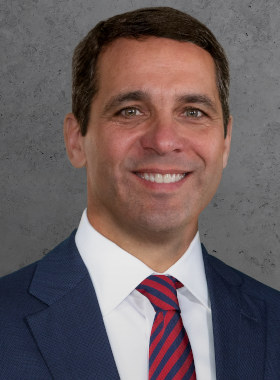
Good question. Before we go there, does this sound familiar?
You’re on your way to work. You’re thinking about what you have to do today (9:00, meeting, 5:00, pick up the kids). When suddenly, another driver blows a stop sign and t-bones you. Before you know it, you’re in an ambulance headed to the hospital. A million things are running through your head. What happened? Who’s going to pick up the kids? I have to call my boss.
Over the next couple days, the shock wears off and new concerns take their place. How am I going to pay for this? I can’t afford this. We get it. Take a deep breath. Here’s some information to help with your medical bills.
Who pays my medical bills after a car accident?
Typically, your car accident medical bills will be paid by your auto-insurance or your health insurance.
Auto insurance versus health insurance
Some auto-insurance policies say that health insurance must pay for medical bills. Other auto-insurance policies say that auto-insurance must pay. How do I know which type I have? You must look at your auto-insurance policy, specifically, your “insurance declaration pages.” What are those? It’s usually the first couple pages of your auto insurance policy. If you don’t have your auto insurance policy, you can request a copy from your insurance agent. You are going to want to look to see whether it says your medical benefits are “primary” or “coordinated.” “Primary” means your auto-insurance pays your medical bills. “Coordinated” means your health insurance pays them. If, after looking at your declaration pages, you are still unclear as to who should pay, call us. We can look at your declaration pages and let you know.
What happens if my auto insurance is responsible for my medical bills?
Michigan is a no-fault insurance state. What’s that mean? It means that, usually, you go to your own auto insurance to get your bills paid, regardless of who was at fault for the crash (you or the other driver). Fault does not matter. That’s why they call it, “no-fault.”
The no-fault insurance system is supposed to work smoothly, but it doesn’t always. Here are some of the issues that sometimes come up.
Submitting a no-fault application to “the correct” auto insurance company after a car accident
To get your bills paid, you must submit an “application for no-fault benefits” to the correct auto insurance company within a year of the crash. If you don’t, you will forever lose your ability to get your bills paid. That’s a big deal. Usually, the correct insurance company is your auto insurance, but not always. For example, if you were injured while driving an employer owned vehicle in the course of your job, the insurance company who insured the employer owned vehicle is responsible for paying your medical bills, not your personal auto insurance. It’s a good idea to talk with a lawyer to make sure you have submitted a no-fault application to the correct insurance company. The price for not doing so is high.
After a car accident, tell your doctors and hospitals who to bill
Once you know the correct insurance company, you will want to tell your doctors and hospitals to bill that insurance company, rather than a different insurance company. Ideally, you want to get this right at the outset. Here’s why. Often, doctors and hospitals don’t know which insurance company to bill (the auto insurance company or the health insurance company) and they bill the wrong insurance company. So what? Insurance companies will typically deny medical bills if they believe another insurance company is responsible for them. That puts you in a situation where you need medical treatment, and your medical treatment is not being paid. That’s not where you want to be. Head this off early by calling your doctors and hospitals and telling them which insurance company to bill. Do this with all your medical providers.
Michigan car accidents and “reasonable proof”
The insurance company doesn’t have to pay your medical bills until you have submitted “reasonable proof” in support of your medical bills. What’s “reasonable proof”? The answer varies based on the circumstances. In most cases, “reasonable proof” for payment of a medical bill is (1) the bill and (2) the medical records corresponding to the bill, but that won’t always be enough. Insurance companies are in business to make money, not to efficiently pay your medical bills. Insurance companies often drag their feet on paying your medical bills. They will say things like, “we need a different version of this bill,” or “we still need more documentation.”
That’s a real problem because there are time limits that apply to getting your bills paid. If the time limits expire, the insurance company doesn’t owe the bills anymore. See why they might have an incentive to delay? Unfortunately, insurance companies sometimes use these delay tactics to avoid paying your bills. Trust us, it happens.
So how do I protect myself? Keep a record of what you submit to the insurance company and when. Email is great for this. You want to have that record so that, down the line, if the insurance doesn’t pay the bill, you can say, “Look, here is the documentation I sent to you 6 months ago.” That’s good for a couple reasons. First, the insurance company is more likely to pay the bill. Second, if they don’t, you may be able to recover interest and attorney fees on the unpaid bill. That means more money in your pocket.
What else do I need to know to protect myself?
The insurance company is not your friend. They talk nice. They promise to be responsive, but they are looking out for themselves. If they can come up with a reason to not pay your medical bills, they will, and they will often go to great lengths to create these rationales, including:
- Sending you for an “independent medical examination” (yeah right) with a doctor of their choosing, who will likely say your crash related injuries weren’t caused by the crash, they were caused by something else;
- Ordering your prior medical records to limit what they must pay (Aha, you went to the doctor five years ago for a backache, that ruptured disc wasn’t from this crash!)
- Accusing you of fraud if your insurance application includes any inaccurate information, even if it was just a mistake (Oh, see here, you never told us that your son turned 16. We didn’t realize there was another potential driver in the house, and we didn’t get an insurance premium for that driver. Sorry, fraud, policy denied).
Would an insurance company really do those things? What do you think?
To really protect yourself, you should talk to a lawyer who can help you see these things coming. Information is power. The more information you have, the more you can control your destiny. You deserve control.
Call or contact Conybeare Law Office now to talk with an experienced car accident lawyer
A car accident is a scary, painful, and traumatic experience. It can be difficult to know who to talk to after a crash, but having an experienced Michigan car accident attorney can help alleviate much of the stress and uncertainty that comes after an accident. The knowledgeable car accident lawyers at Conybeare Law Office will help you understand your rights so you feel like you in are in control, and they will fight to get you the money you deserve. To learn more about the wide range of legal services offered to our Michigan car accident clients, talk to our office today. Conybeare Law Office has offices in Saint Joseph and Kalamazoo, Michigan, and proudly serves all of southwest Michigan and beyond. Call or contact us for a free consultation. Remember, if it’s not fair, call the bear.
Related Content:
Who Pays For Pain and Suffering in a Car Accident in Michigan?
How Long to Get a Settlement From a Car Accident in Michigan?
What Damages Can I Recover for a Motorcycle Accident in Michigan?
What to do if You Lose a Michigan Car Accident Lawsuit
What Will Insurance Pay For After a Car Accident in Michigan?

Barry Conybeare focuses on all aspects of personal injury law, including car accidents, medical malpractice, product liability, insurance claims, and most other injury cases.
- Best Lawyers in America®, Lawyer of the Year 2024, 2021, 2017, and 2013, Plaintiffs Personal Injury Litigation, Kalamazoo Region (Southwest Michigan)
- Best Lawyers in America® 2008-2024, Plaintiffs Personal Injury Litigation, Kalamazoo Region (Southwest Michigan)
- Michigan Super Lawyers® 2009-2023